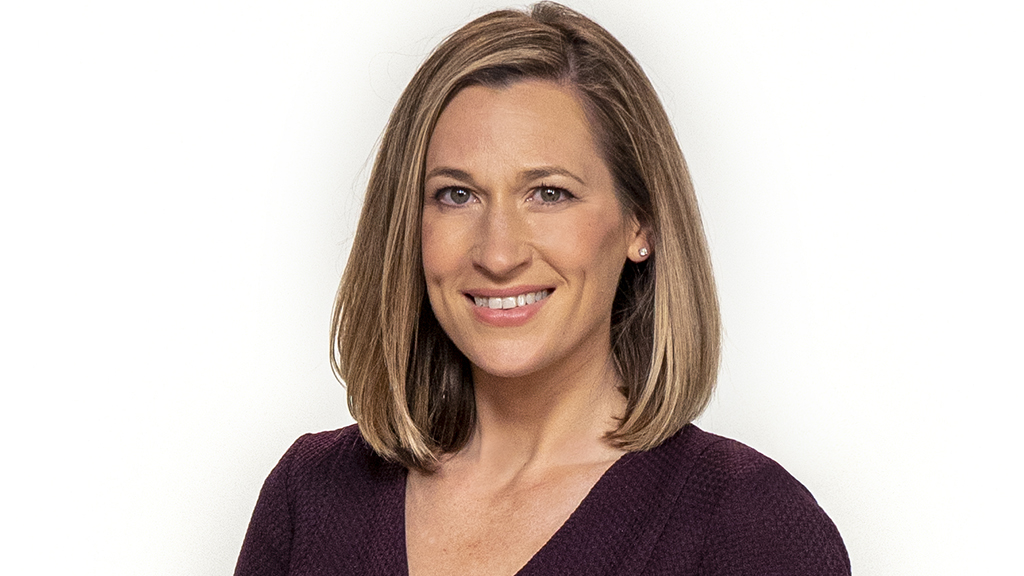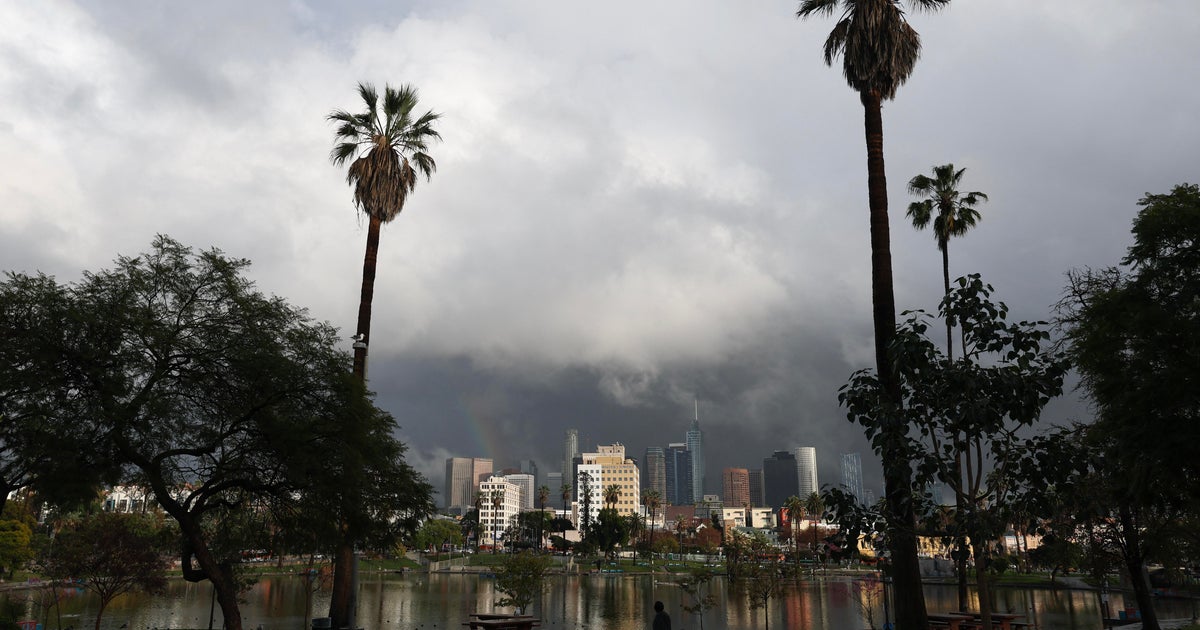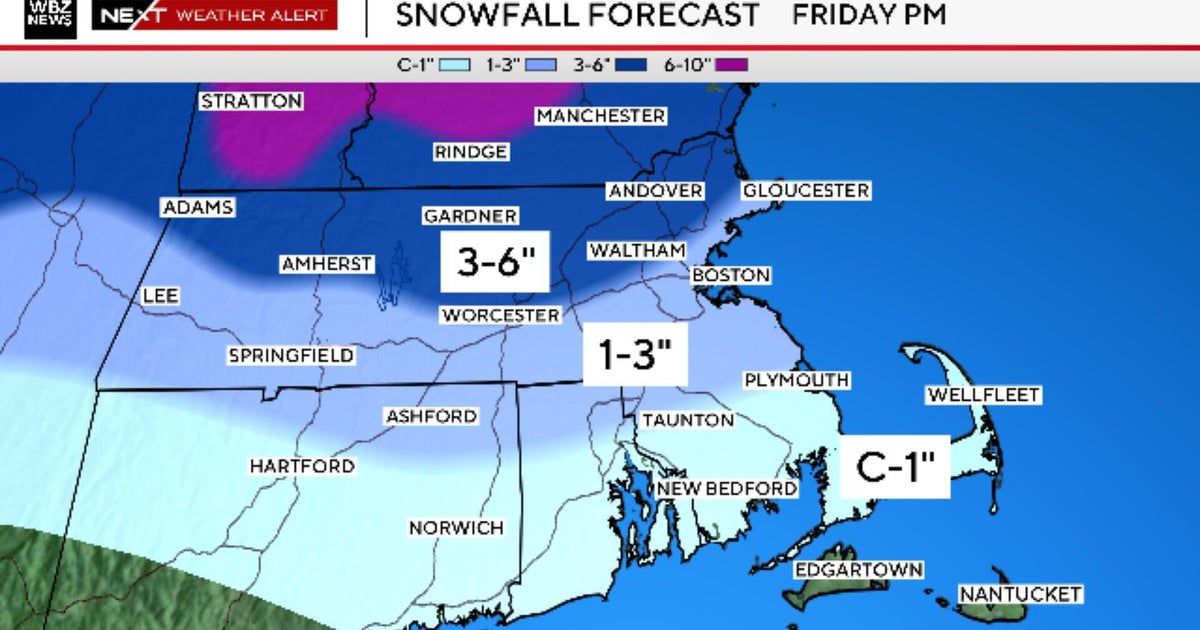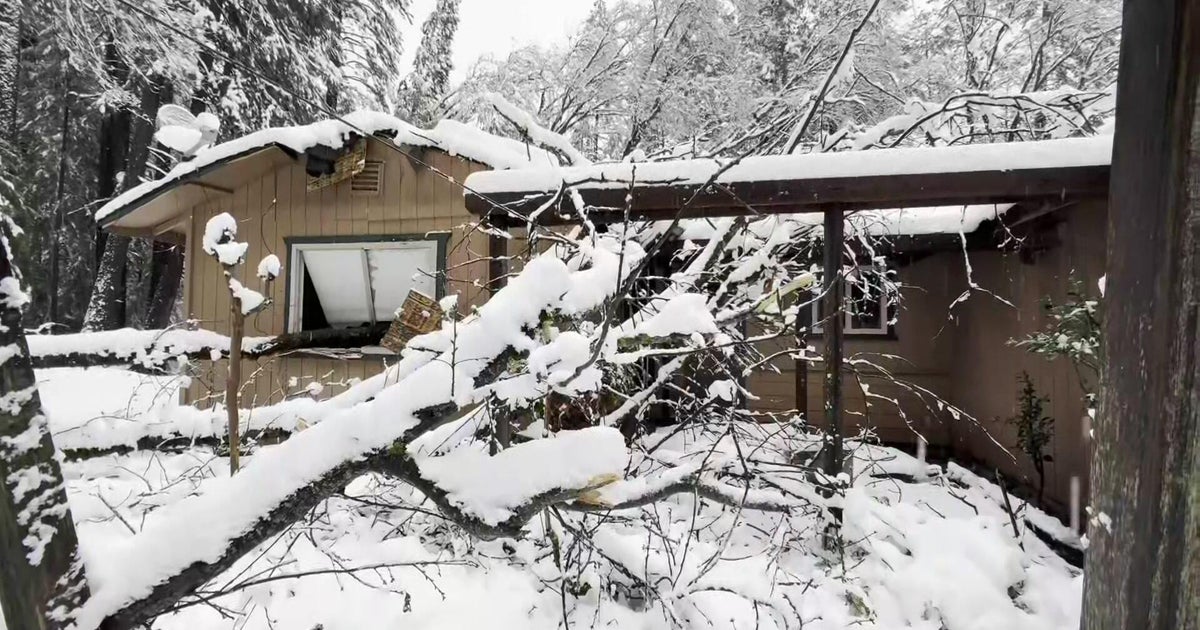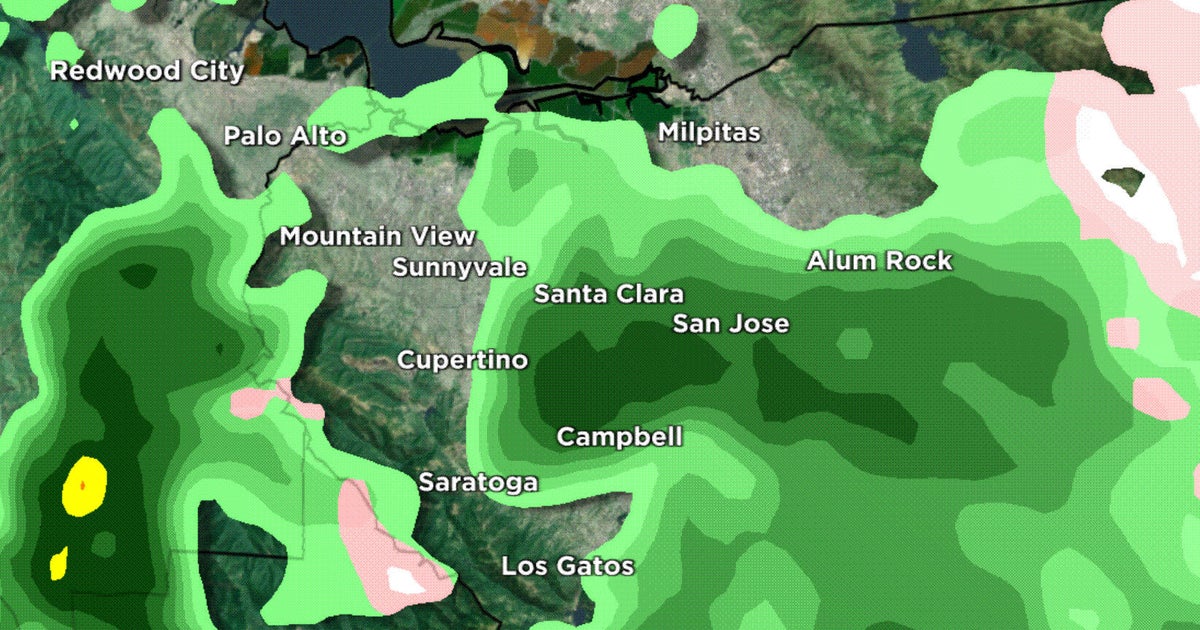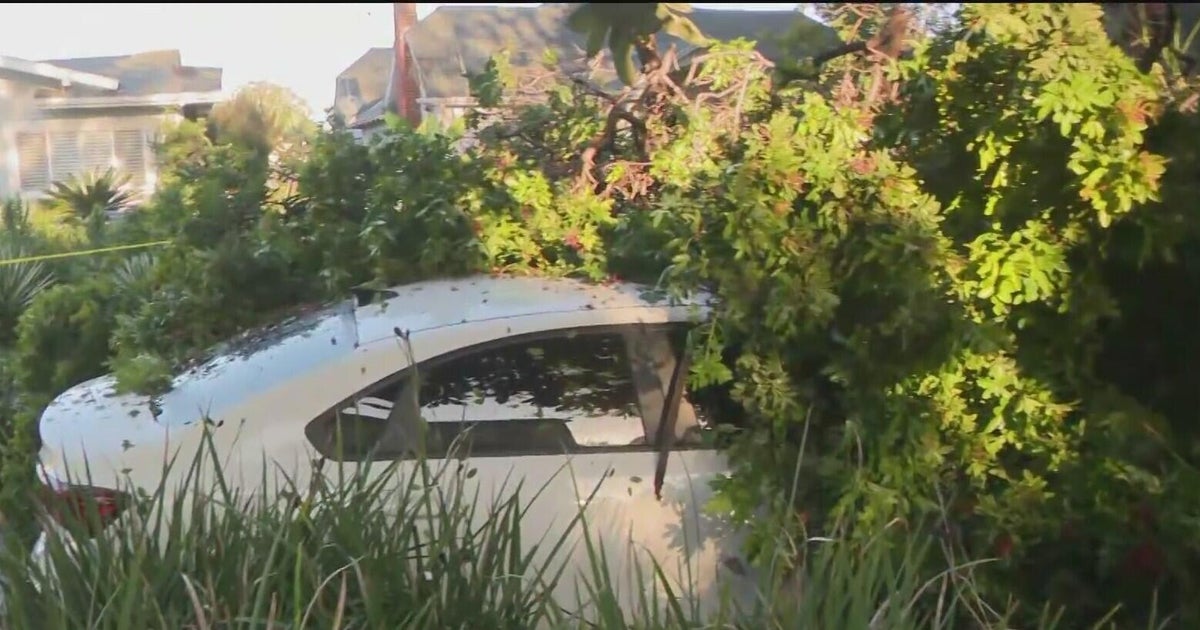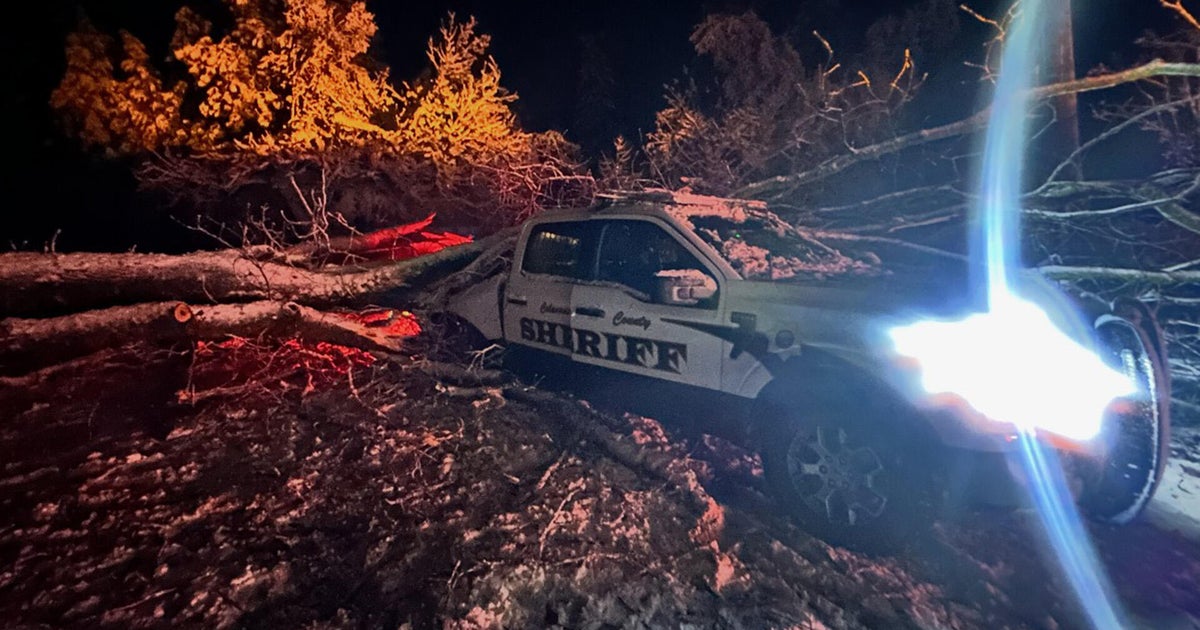Chelmsford woman inspired by 1991 Perfect Storm becomes 'Hurricane Hunter'
BILOXI, MS - Hurricanes are amongst the most destructive and powerful natural occurrences on the planet. They can force thousands or even millions to evacuate their homes and flee for safety. But a brave few are doing just the opposite in an effort to save lives - they are hurricane hunters. Flying into the eye of some of the strongest storms, collecting crucial data to improve forecasting capabilities to keep people safe.
"You know what it's doing, you know havoc is going to wreak," said Kaitlyn McLaughlin, Lt. Col. USAF Chief Aerial Reconnaissance Weather Officer.
McLaughlin is a Lieutenant Colonel in the Air Force Reserves and is the first female chief aerial reconnaissance weather officer. She's also a hurricane hunter.
"It's what you expect, a lot of heavy rain. sometimes hail, lightning, it's bumpy," McLaughlin told WBZ-TV.
We asked her if she ever gets worried.
"I get concerned on occasion, I'd say at least once a season, usually the diciest missions, are landfall, when the storm hits the land, the friction causes the storms to fall apart of course, but that falling apart makes the vertical missions pretty rough," McLaughlin explained.
She said it was like a rollercoaster ride because the plane can go up and down.
"Yeah, drastically, thousands of feet," said McLaughlin.
This thrill-ride career was sparked while growing up in Chelmsford
"I was in high school when the Perfect Storm hit, and that's when I got fascinated, and then I went to the University of Miami, got my meteorology degree and joined ROTC there. While I was in college, the book came out, and one summer I read the book and I was like, this is a great book. And my dad and I drove down to Gloucester to check it out, and the scenes," McLaughlin told WBZ. "In the book, they actually mentioned hurricane hunters. And that was the first time I was, ooh, that might be a cool job."
McLaughlin always had a natural liking to math and science.
"I had a horrible time spelling. I still do and that's OK. So, it just made sense. Math and science were the things that I naturally succeeded in. Therefore, I liked them more. So, I knew that's where I needed to be and use those to my benefit," she explained.
In 2005, she finally got the chance to hunt hurricanes and flew into almost all of them that season, including Hurricane Katrina.
"You go from this, you know, havoc, crazy you can't see anything out the window, to absolute complete calm. And the stadium effect is kind of like being in the middle of the largest football stadium you can imagine, but the crowds go up to 50 to 60 thousand feet, it's just straight walls of clouds," McLaughlin described.
"It made me very aware of why we do what we do and how it impacts the actual people on the ground," McLaughlin said.
Herself included, having her own home flooded during Hurricane Katrina.
"I moved here to Biloxi, Mississippi in that timeframe, and I lived with the aftermath and got water in my house. So, it was also eye-opening, this is what it feels like when it actually hits your home," McLaughlin told WBZ.
Since that season, a lot has changed.
"So when I first joined, it was myself and one other female meteorologist, and we had one female pilot, of a unit of 100, and now almost half of the meteorologists are female. It's been really a drastic shift, which is really cool," McLaughlin said.
Other changes have come with technology and the way hurricane hunters fly into the storms.
"We don't always do a standard 'X' pattern like we used to. We definitely have enhanced the way we fly winter season storms as well. We found it's better to sample the right data at the right time and at the right place than to sample anything. So, we have fine-tuned our techniques a little bit and that it helps the science greatly," McLaughlin said.
She explained what the goal of each tropical mission is.
"Our primary, most important thing is we need to find the exact center of the storm and tropical systems," McLaughlin said.
Once they are inside the center, they release an instrument called a dropsonde which will measure valuable weather data like intensity and sea level pressure.
"We're gathering all the weather data that we can. We send it through satellite communications directly to the hurricane center. When you have to run a 5K, if you don't know where the starting point is, you're not going to do so good. So, we're giving them a starting point. And that point is very hard to decipher even today on satellite imagery," McLaughlin said.
She isn't just a hurricane hunter. She flies into all different kinds of weather from atmospheric rivers, upper-level lows to many of our powerful nor'easters during the winter.
"The winter storms are just as devastating, let's be honest. The winds are crazy, they are intense, and they can shut down civilization for days at a time," McLaughlin explained. "They are a very different mission, we fly high. Well for us its high, it's like 30 to 33,000 feet and we release a ton of our instruments, the dropsondes. So our mission isn't exactly to find a center. We generally don't go into the center because of icing, we can't. But we do try to sample in front of the nor'easters, so the environment before the storm gets there will help the data there."
But there was one mission, flying into major Hurricane Felix in the middle of the night with a full moon, she'll never forget. A brief moment to soak it all in.
"It was one of those surreal moments. It was a category five, it was rapidly intensifying, the ride was pretty extraordinary, turbulent. But what was cool was, this full moon made it look like it was daytime out and because it was rapidly intensifying, lightning was everywhere in the eyewall. There was so much lightning it made everything glow," McLaughlin said.
Despite the beauty, she knows the power of the beast and how important her role is as a hurricane hunter.
"I don't think it escapes me that it is important to do this. I think having lived through Katrina, definitely changed it because before that it was fun, and exciting and it still is, but it's also the, I hope this doesn't make landfall," McLaughlin said.
McLaughlin plans to retire in 2025 with 25 years of service. We asked her what advice she would give to the younger generation.
"Consistent hard work will get you anywhere you want to go. But nothing happens overnight, it's not instantaneous, and you have to be consistently a hard worker," McLaughlin said.
